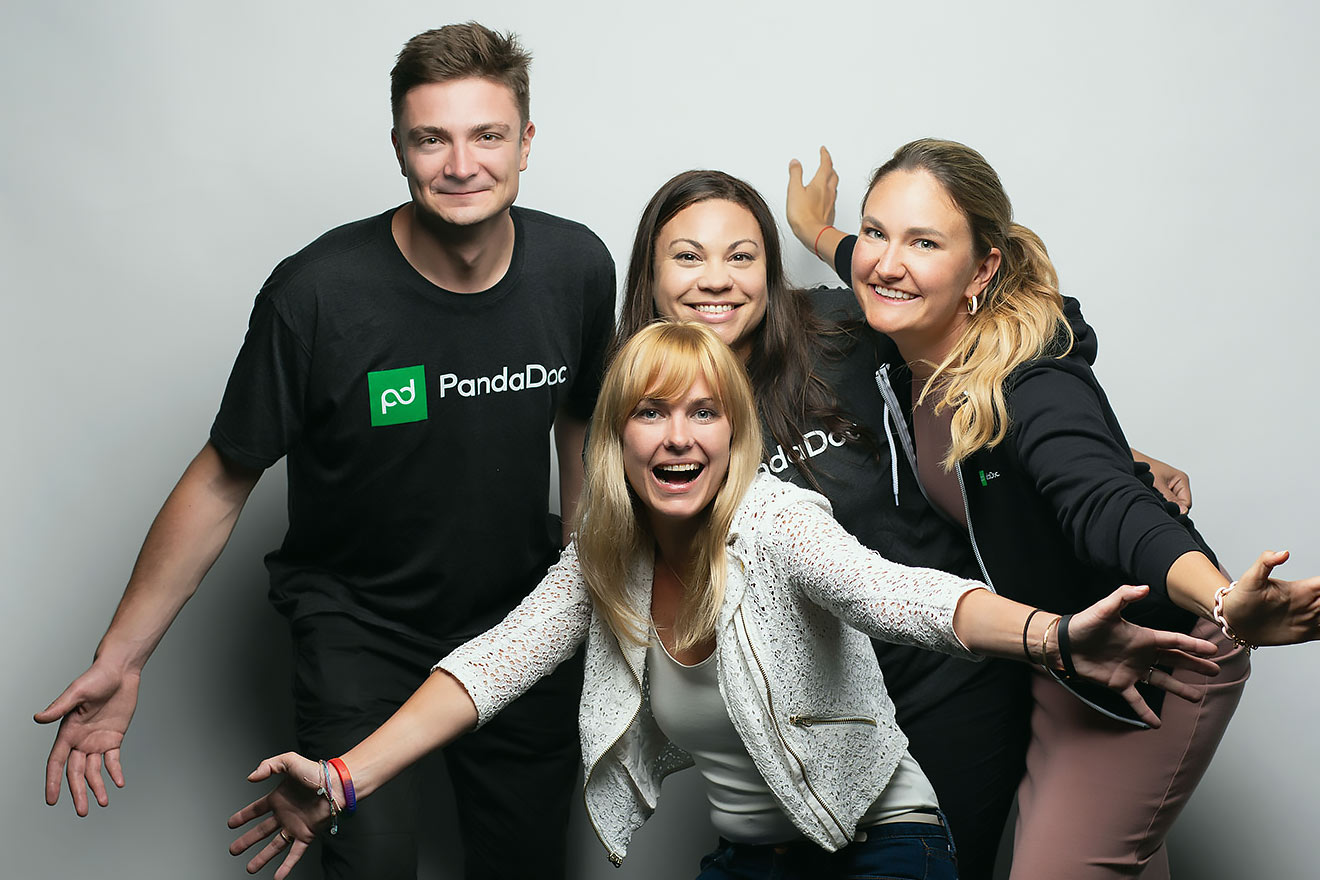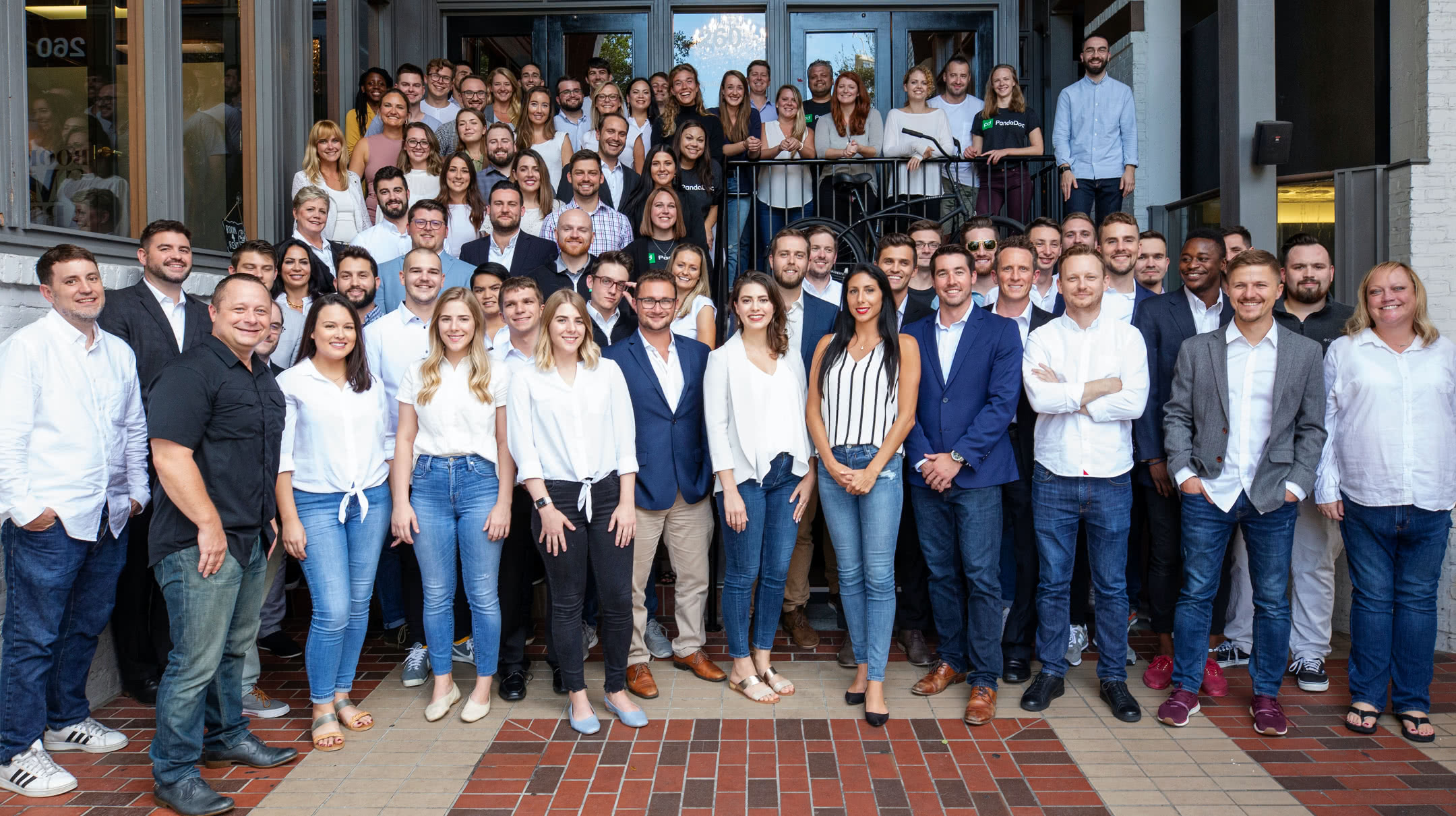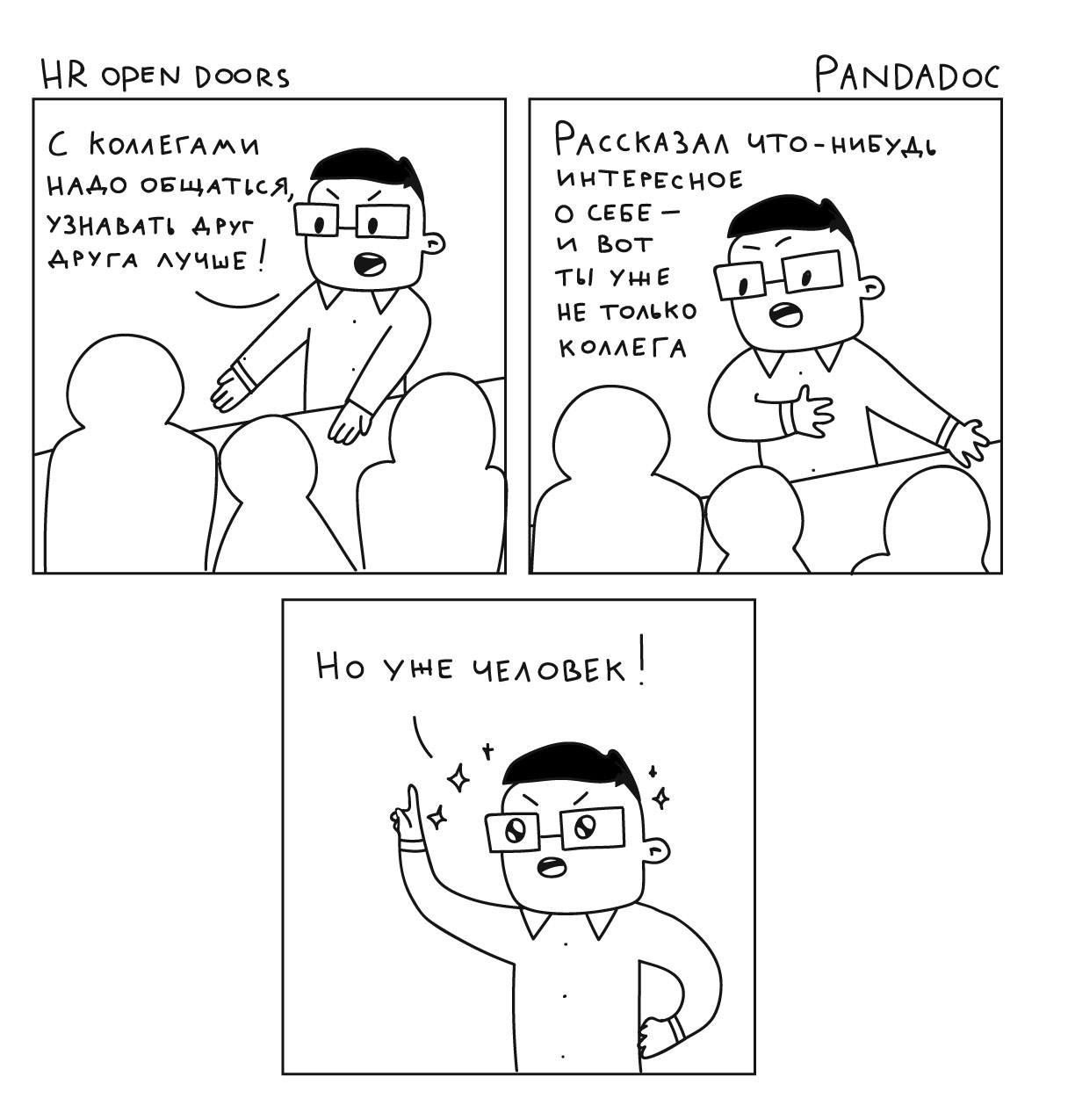PandaDoc is one of the leaders in its product niche. It was named the fourth-best document workflow automation service in Capterra's 2020 rating. In September 2020, the company announced that it opened a Ukrainian office. With over 30 staff moved from Belarus to Kyiv, Odesa, and Lviv, PandaDoc Ukraine now employs over 100 people. The company is planning to grow its Ukrainian team further, adding 100+ specialists in all kinds of areas by the end of this year.
But does the Ukrainian tech talent market live up to the company's expectations? INDIGO Tech Recruiters discussed it with Vladislav Mikholap, PandaDoc's HRD.

Vladislav Mikholap: The decision to open new offices in Kyiv and Lisbon was made back in March 2020. We eyed other locations, too, including Poland and Estonia. The new office had to be geographically close to Belarus and somewhere in nearby time zones. We have offices in two US cities: San Francisco (Silicon Valley), California, and St. Petersburg, Florida. There, teams have a hard time communicating with each other because of the time difference.
Mentality made no difference to us. I believe that the culture is not about the country but about picking the right people for the team. For one, Robin Corralez, PandaDoc's VP Human Resources, fits our culture much better, although she is American. She is open, honest, and always means what she says. In US companies, people tend to smooth things over. If someone says: ‘Excellent’, it doesn't mean they feel super positively about your performance. Robin is always forthright in what she says.
The language was also a big factor in choosing the country. Almost everyone in the team speaks English, but it's still easier to use Russian in everyday communications.
Also, we had outstanding impressions of Ukraine. In 2017 and 2018, we had company outings in Lviv and Bukovel. We enjoyed the culture, people, places, and booming entrepreneurship. Besides, we had a blast working with Ukrainian specialists already—PandaDoc had 10 of them way before the Ukrainian office was opened.
Also, we took into account the simplicity of incorporation in the country and whether our staff will be willing to relocate there. Ukraine checked both boxes. Our management reached out to local authorities, and moving personnel here was even easier than we expected. We could have relocated the entire office, but only 30 of our Minsk staff actually decided to move here. Many went to other European countries and the USA.
The Ukrainian tech talent market is four times as large as the Belarusian one. We are rapidly growing and actively recruiting, focusing primarily on senior-level specialists. It was getting harder to find people in Belarus, where our team has met almost all the specialists.
 The PandaDoc team
The PandaDoc team
Vladislav Mikholap: Top-notch talent has always been notoriously hard to hire, but it's indeed much easier for us to hire in Ukraine. I believe that PandaDoc is a rad employer. We show good results. In Q1 2021, 58 people joined our new office, 37 engineers among them. We have four recruiters from our Minsk office to thank for that. Two of them have good Ukrainian, with one even eventually moving to Kyiv.
This year, we aim at getting about 100 new hires in Ukraine, primarily developers. Our tech stack includes Python, Java, JavaScript, and React Native. Also, we need QA, DevOps, sales, PPC, and marketing specialists, product and account managers, designers… We have all kinds of positions open. Incidentally, in Ukraine, we have an easier time recruiting not only programmers but also specialists in the revenue and marketing departments, and I'm happy the market is this balanced.
However, the market is very hot now, too, I can't deny that. We just have to accept that. When I last looked at the analytics from Djinni, an anonymous tech job marketplace, it had 21,000+ job listings and almost 16,000 registered candidates. We saw tremendous growth this year; I'm so happy for Ukraine. Generally, I love working in the overheated market. Employers are forced to choose between evolving and or become a talent donor for others. Competition makes us adapt and grow faster. And it certainly keeps us on our toes.
Vladislav Mikholap: If I had one thing to point out, it would be a higher cost of instruments. Salaries in Ukraine are higher, too, but we accept that a senior specialist can expect a compensation of $5,000–6,000 as a given. With the new market come new rules and new conditions. So we adapted fast and have started growing already.
 PandaDoc office
PandaDoc office
Vladislav Mikholap: For the most part, we recruit by ourselves, only occasionally involving external sourcers. We have an uneven load in terms of hiring. We do have annual plans, but they almost always get revised upwards because of how fast the business grows. For instance, our paid subscriber base exceeded 20,000 in 2020. And in March 2020, PandaDoc launched a free plan, which attracted another 50,000 users.
Vladislav Mikholap: It's the confidence that the company puts people first. Our company did all kinds of things for its employees—from helping them through the hard times in Belarus and to the mental health budget introduced in the wake of the pandemic and lockdowns.
We put little effort into promoting the company's brand in the countries of our presence. And a third of people that we hire actually get recommended to us. I'm lucky to have an outstanding team and lots of people around me that genuinely care. Nine out of ten our offers are accepted. Keep in mind, we don't try to buy people. We won't overpay a specialist to hire them if they don't share our goals and objectives.
Vladislav Mikholap: The Digital Nomad system helps us flexibly respond to changes. Our employees can move to any country and continue working with us even if PandaDoc has no offices there. We also provide financial aid to those who choose to relocate and compensate 15% of taxes, should our specialists decide to register as individual entrepreneurs in their new country of residence.
We have also enhanced our benefits package, adding new options like mental health budget for those who need to recoup from the nerve-fraying pandemic, crisis, lockdowns, and lack of human interaction during remote work. Employees can spend this money on apps, counseling, and therapy. We have an excellent counselor on our team who uses his extensive experience of working with military pilots to hold stress management workshops for us.
Also, weekly staff surveys are conducted via the Lattice app's Pulse Survey to understand people's sentiments: if they trust their managers, if they get enough support within the team, if they feel lonely, and if they can openly talk about their issues.
The company also subsidizes the purchase of devices and furniture for home offices to make remote work easier on people. The modern staples like insurance and education budget are also there. To the employees who choose the Digital Nomad lifestyle, we can just pay $2,000 per year as a benefit package compensation.
Presently, we work remotely for the most part, but there were requests to come back to the office in the team. We plan to set up a flexible format for people to choose themselves if they want to work at home or at the office, albeit it won't happen until the pandemic subsides.
Vladislav Mikholap: It's our cultural code comprising four components: Make an impact, Learn, Have fun, and Empathy. Truth be told, I was sceptical about all this cultural code thing when I joined the company four years ago. I did hear about it in other companies but never experienced it outside the text that described it. It took me six months to see for myself that it's something that works, not just pretty words.
First, I was surprised by the attitude to error they had here. We are our own harshest critics, and it's here that I experienced that making mistakes is OK. So, you mess up, but your manager just goes: ‘Stuff happens. What will your next step be?’ It helps establish trust and encourages action. Don't look around for a sure-fire solution, ask permission on every step, and endlessly gauge your decisions; just try things.
Mikita Mikado, one of the founders, encourages and rewards challenging questions from employees during company meetings. Anyone can discuss anything with a manager of any level. You can have an impact on the product in any role. It worked when the company had 50 personnel, and it still does, even though the headcount has exceeded 500 already. It is as simple as seeing areas for improvement, studying them and pitching the idea, and getting green light to implement it if it is good enough. I remember engineers gathering entire teams and promoting new initiatives within the company on more than one occasion, e.g., to optimize the application's responsiveness.
We have a powerful team of experienced professionals, many of whom cut their teeth in this company. For every year you work for PandaDoc, you get two years worth of professional growth. I have experienced it, and I see it when I watch my colleagues. Most importantly, it is you who are responsible for your growth, not your managers. If you want to develop as a specialist and accept feedback—you will make it in the industry.
Vladislav Mikholap: We make no extra effort to change the mind of the people who decide to leave. I remember Mikita saying: ‘Work makes half of our life. I would greatly prefer if thinking about one's working day didn't spoil people's mood at the very least. It's no good having to endure your work. And we have very low employee turnover, too.
 PandaDoc office
PandaDoc office
Vladislav Mikholap: I believe that having a goal is a crucial part of the motivation. It's about knowing why you are working and to what end. For me, there is nothing worse than just processing the work, completing tasks just because you were assigned to them, and having no clue of why you are doing the things you do. You can get this feeling in any role. In the case of a recruiter, it may be endlessly hiring people and handing them over to managers without a clear understanding if your effort helps develop the business, how this specialist changes the company, and why they agreed to the job in the first place.
We have many metrics, the two crucial ones being the client count and average revenue per account (ARPA). These are what guides us in our work.
Everyone on the team understands how his or her work impacts the business, our clients, and our industry. All our employees can check out the progress on key metrics: how much the business is making, how many new clients we attract, and which results new initiatives yield. All our metrics are available on Tableau. We continuously track them and then discuss the results and plans at the monthly all-hands meetings.
But metrics are just that. Real people and stories are much more inspiring. Face to face with the user, you become much closer to answering the question: ‘Why am I doing this?’ Your product enables people to work faster and better. We make it a point to involve engineers in client calls. It develops empathy and gives you a glimpse of how users see the results of your work. It's also a great inspiration to meet clients randomly in real life. Like when the guys recalled positive feedback from the head of a plumbing family business in New York, which they visited some time ago, or while sharing a chairlift in Bukovel with a person who happens to be a company CEO and loyal user of our products.
Vladislav Mikholap: Besides the primary recruitment metrics that answer many questions, we talk to hiring managers a lot and listen to the candidates (and, hopefully, hear them). Also, we sometimes attend business meetings, retrospectives, and sprint interviews. I believe this connection to the business does help us do our job better. We are as honest hones as can be at interviews, making sure not to overstate things and tell it like it is. Nothing good can come out of wrong or disappointed expectations, and it can have implications for the brand and financial performance.
Managers and recruiters are equally responsible for hiring talent—whether successfully or not. Recruiters have a say; their opinions matter and are taken into consideration. Mangers realize that we know the market and the trade better. In our company, there is nothing unusual in a recruiter persuading the hiring manager to consider the candidate despite what they saw in the resume or voicing any concerns he or she might have.

Vladislav Mikholap: I firmly believe that a good interview is a conversation between two people where each of them knows what they want or not and openly talks about it. We don't use psychological tests because we don't consider ourselves psychologists. And we have no illusions about being able to assess the specialist 100% correctly. We just create a relaxed atmosphere and talk to people, pointing out that it's not just we that pick specialists, but specialists pick us and encouraging candidates to interrupt and ask their questions.
We have simplified the process, boiling it down to candidate screening, a hard-skills (technical) interview, and a soft-skills (cultural match) interview. For some positions, we also throw in a test assignment. For managers, we have more activities. All stages combined usually take about a week. The principal success metric is the completion of the probationary period. It makes no difference if you have a technical interview comprising four sections of one hour each or just one 90-minute section. At least it makes no difference to the completion of the probationary period by the candidate.
Vladislav Mikholap: It's usually professional skills. In the case of a cultural fit interview, it's probably a misalignment of values and approaches to work. Like, it's just difficult to work with people that expect to be provided with step-by-step instructions for every task they are assigned. PandaDoc grows and evolves, and the people who have an easier time adapting to new things like it here. Also, it is essential that a candidate is inclined to tackle problems, not complain about them. And character and personality type are irrelevant.

Vladislav Mikholap: First, it's hiring similar people—those that are like you. The team of daring innovators needs nitpicky perfectionists that will see weak links and enhance processes. There two superb critics on my team that uncover shortcomings in the best initiatives, and it's great because they make our solutions more sophisticated. I remember Andrey Doronichev, the YouTube mobile creator and product manager at Google, sharing his experience. The first prototype of their AR glasses was unfit for presentation for the sole reason that there were no people with long hair on the development team. An impressive example, even if simple. All kinds of people emphasize that diversity is essential, and rightly so.
Another mistake is to believe that you can see the world through the eyes of another human, like, to be in their shoes. You need to talk to people, ask questions, listen and, most importantly, hear the answers without making things up for the candidate. If you doubt whether you got everything right or feel that something is off, dig deeper.








 Success!
Success! 